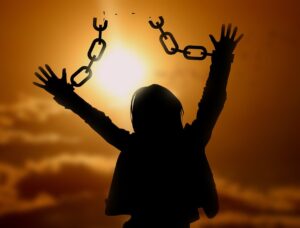It’s that time of year again, when Jewish people have just celebrated Passover, called “the time of our liberation”. This spring holiday, while incorporating the usual celebrations of new life (such as eggs and green vegetables), is also a commemoration of the Biblical Exodus from Egypt, when the Israelites were liberated from slavery and began their new life as free people. It’s a good time to consider what it means to be free.
One important characteristic of freedom is that it allows people to disagree with each other, even very strongly, in a safe manner. Those of us who are fortunate to live in democratic societies enjoy a great deal of freedom to hold whichever opinions we like, as long as we do not seek to impose them on others by force. Our social contract, under which we agree to be citizens of a certain state and abide by its laws, forbids certain actions, such as murder, driving under the influence of drugs or alcohol, or sexual violence, which are judged to be harmful to all. The state holds a monopoly on enforcing those laws, with violence if necessary. Citizens who disagree with certain laws are free to protest, petition, run for office, or do other non-violent actions to try and get the laws changed. That is part of how we understand freedom in a democratic society.
But is it really so simple? Does every citizen of the state have the same freedoms? Or are some “more equal than others”, to quote George Orwell, who wrote about these matters almost 80 years ago? What about structural inequities, systemic racism, misogyny, homophobia and transphobia? What about unjust laws that were put in place in the past, which favour certain parts of the population over others? How do we work to make our country, to which I am an immigrant like so many of my readers, a place that is welcoming and safe for all?
Change can be hard, and the pushback is understandable – after all, when you are accustomed to privilege, equality can feel like oppression. But with the looming climate catastrophe and other reasons to be anxious about the future of our children, we must remember that freedom is precious, easily lost and hard to regain. But there is hope – if we stand together, we can make a better world, one where everyone, regardless of race, gender, creed or sexual orientation, can be free to live their best lives.
That’s the country I want to live in. How about you?

